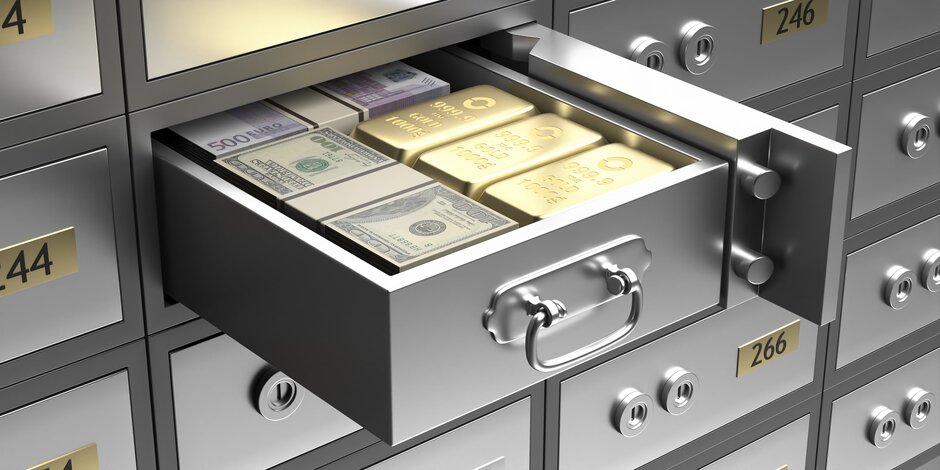2024 started as 2023 ended: With central banks buying more Gold

Central banks took up where they left off in 2023, adding more gold to their stockpiles to kick off the new year.
Globally, central banks increased their gold reserves by a net 39 tons in January, according to the latest data compiled by the World Gold Council.
Turkey was the biggest buyer in January, adding 12 tons of gold to its reserves. With the most recent addition, the Central Bank of Turkey now holds 552 tons of gold.
Last year, Turkey was a net seller, liquidating 160 tons of gold in the spring of 2023. The central bank returned to buying in the third quarter of last year.
According to the World Gold Council, the big gold sale was a specific response to local market dynamics and didn’t appear to reflect a change in the Turkish central bank’s long-term gold strategy. The Turkish central bank sold gold into the local market to satisfy demand after the government imposed import quotas in an attempt to improve its current account balance. The country is running a significant trade deficit.
China continued to add gold to its reserves at a steady pace in January with a 10-ton purchase. It was the 15th straight month of gold buying for the People’s Bank of China.
Official total Chinese gold holdings now stand at 2,245 tons, nearly 300 tons higher than at the end of October 2022 when the People's Bank of China resumed reporting gold purchases.
There has long been speculation that China owns far more gold than it officially reveals. As Jim Rickards pointed out on Mises Daily back in 2015, many analysts believe that China keeps several thousand tons of gold “off the books” in a separate entity called the State Administration for Foreign Exchange (SAFE).
The Reserve Bank of India bought gold for the first time since last October, increasing its reserves by 9 tons. Since resuming buying in late 2017, the Reserve Bank of India has purchased over 200 tons of gold. In August 2020, there were reports that the RBI was considering significantly raising its gold reserves.
Kazakhstan was a consistent seller most of last year, but the Kazak central bank returned to buying gold in January with a 6-ton purchase. It is not uncommon for banks that buy from domestic production – such as Uzbekistan and Kazakhstan – to switch between buying and selling.
The Central Bank of Jordan increased its gold holding for the second consecutive month, adding 3 tons of gold to its reserves. The small Middle Eastern nation now holds 75 tons of gold.
The Czech National Bank increased its gold holdings for the 11th straight month with a 2-ton purchase.
There were no notable sellers in January.
The Central Bank of Russia reported a 3-ton decline in its gold reserves. According to the World Gold Council, this was "a continuation of a pattern that has been in place since 2021: frequent 3t declines that are subsequently replenished. We believe this activity is related to the country’s coin minting program."
The World Gold Council said the continuation of gold buying in January supports its expectation that "2024 will be another solid year of central bank gold demand."
"Last year central banks placed great emphasis on gold’s value in crisis response, diversification attributes and store-of-value credentials. A few months into 2024 the world seems no less uncertain meaning those reasons for owning gold are as relevant as ever."
Last year, central bank gold buying fell just 45 tons short of 2022’s multi-decade record.
According to the World Gold Council, central banks net gold purchases totaled 1,037 tons in 2023. It was the second straight year central banks added more than 1,000 tons to their total reserves.
Central bank gold buying in 2023 built on the prior record year. Total central bank gold buying in 2022 came in at 1,136 tons. It was the highest level of net purchases on record dating back to 1950, including since the suspension of dollar convertibility into gold in 1971.
China was the biggest buyer in 2023.
Analysts at ANZ Bank recently said they expect central bank gold buying to remain hot for at least the next six years. According to these analysts, "Depleted trust in the U.S. fixed-income assets and the rise of non-reserve currencies are other themes that could support central bank gold buying."
To receive free commentary and analysis on the gold and silver markets, click here to be added to the Money Metals news service.
Author

Mike Maharrey
Money Metals Exchange
Mike Maharrey is a journalist and market analyst for MoneyMetals.com with over a decade of experience in precious metals. He holds a BS in accounting from the University of Kentucky and a BA in journalism from the University of South Florida.

















